全面建成小康社会:中国人权事业发展的光辉篇章(双语全文)
新华网 2021-08-12 15:14

四、实行良法善治维护公民权利政治权利
IV. Protecting Civil and Political Rights with Law and Governance
在全面建成小康社会进程中,中国共产党和中国政府践行以人民为中心的发展思想,以更大的力度、更实的措施发展全过程人民民主,维护社会公平正义,确保人民依法享有更加广泛、更加充分、更加真实的权利和自由。
In building a moderately prosperous society in all respects, the CPC and the Chinese government have pursued a people-centered development philosophy, and adopted vigorous and practical measures to develop whole-process people’s democracy, uphold social equity and justice, and ensure by law that people enjoy more extensive rights and freedoms.
1.拓展人民民主权利
1. Expanding People’s Democratic Rights
坚持人民主体地位,发展完善人民代表大会制度以及中国共产党领导的多党合作和政治协商制度、基层群众自治制度,丰富民主形式,拓宽民主渠道,人民民主权利得到切实保障。
China ensures the principal status of the people, and improves the system of people’s congresses, the system of CPC-led multiparty cooperation and political consultation, and the system of community-level self-governance. It has worked to diversify the forms of democracy and establish more democratic channels. People’s democratic rights are effectively protected.
民主选举有序发展。城乡按相同人口比例选举人大代表,保证各地区、各民族、各方面都有适当数量的代表。县级及以下人大代表实行直接选举,强调保障人民选举权和被选举权,确保选举工作风清气正、选举结果人民满意。2016年开始的县乡两级人民代表大会换届选举中,登记选民10亿多人,直接选举产生近248万名县乡两级人大代表。全国共有五级人大代表262万多名。
Implementing orderly democratic election processes. Both rural and urban areas are represented by people’s congress deputies in proportion to their population, and all regions, ethnic groups, and sectors of society have a certain proportion of deputies.
To guarantee people’s rights to vote and to stand for election, deputies to the people’s congresses at the county level and below are directly elected, and measures are taken to ensure the elections are clean and the results are satisfactory to the people. In the elections to the people’s congresses at county and township levels beginning in 2016, more than 1 billion constituents cast votes for nearly 2.5 million deputies. There are now more than 2.6 million deputies to the people’s congresses at all five levels – the province, city, county, township, and village levels.
社会主义协商民主稳步健全。推动协商民主广泛多层制度化发展,不断规范协商内容、协商程序,以事关经济社会发展全局和涉及群众切身利益的实际问题为内容,开展广泛协商。发挥人民政协作为社会主义协商民主的重要渠道和专门协商机构作用,推动协商履职成果更好运用。2012年1月至2021年6月,全国政协共收到58768件提案,48496件立案,大多数提案的建议得到采纳和落实。
Steadily advancing socialist consultative democracy. Democratic consultation is applied extensively as a mechanism at multiple levels. The fields and procedures of consultation are well regulated. Extensive consultation is conducted on matters concerning overall economic and social development and related to the vital interests of the people.
The Chinese People’s Political Consultative Conference (CPPCC) serves as a major channel and specialized body for socialist consultative democracy. It has worked hard to play its role well and apply the results of consultation to good effect. Between January 2012 and June 2021, the CPPCC National Committee had received 58,768 proposals, 48,496 of which were placed on file. Most of the suggestions in the proposals were adopted and implemented.
基层群众自治不断完善。修订城市居民委员会组织法、村民委员会组织法,进一步完善和规范居委会、村委会成员的选举和罢免程序。全国农村已普遍开展10轮以上村委会换届选举,98%以上的村委会依法实行直接选举,村民参选率达95%。拓展流动人口有序参与居住地社区治理渠道。在脱贫攻坚中,特别注重健全村民自治机制,凡是涉及脱贫攻坚惠民政策的落实、惠民资金的分配使用、民生工程项目的建设,都广泛开展议事协商,凝聚群众共识,取得群众支持。以职工代表大会为基本形式的企事业单位民主管理制度不断健全,目前全国已有29个省(区、市)制定了36个有关企业民主管理的地方性法规,保障职工参与管理和监督的民主权利,维护职工合法权益。
Improving community-level self-governance. China has amended the Organic Law of the Urban Residents Committees and the Organic Law of the Villagers Committees to improve and regulate the election and removal procedures for committee members. More than 10 rounds of villagers committee elections have been held in villages across the nation. More than 98 percent of these have been conducted by direct election, with more than 95 percent of villagers taking part. The state has worked to expand the channels for the migrant population to participate in community-level governance in their residential areas.
In the fight against poverty, China has paid special attention to improving the mechanism for self-governance by villagers. All matters related to the implementation of poverty alleviation policies, allocation and use of public funds, and projects for improving people’s wellbeing are subject to extensive public discussion and consultation to build consensus and obtain popular support.
The system for the democratic management of enterprises and public institutions in the form of workers congresses has improved. Across the country, 29 provinces and equivalent administrative units have issued 36 local regulations concerning the democratic management of enterprises, to guarantee workers’ right to participate in management and oversight, and to protect their lawful rights and interests.
知情权、参与权、表达权、监督权得到切实保障。实行审计结果公告制度,制定修改政府信息公开条例,提升政府信息公开水平,保障公民知情权。“互联网+政务服务”服务能力持续提升。通过推行“一网通办”,全国一半以上行政许可事项办理时限缩短40%以上,省级行政许可事项网上受理和“最多跑一次”比例超过82%,50个高频服务事项和200个便民服务实现“跨省通办”。根据《2020年联合国电子政务调查报告》,中国电子政务服务的在线服务指数与电子参与水平均列全球第9位,进入领先行列。推进民主立法,完善立法座谈论证、法律草案公开征求意见等制度,使每一项立法反映人民意志。截至2020年,十三届全国人大常委会已就87件次法律草案公开征求意见。不断健全依法决策机制,将公众参与、专家论证、风险评估、合法性审查、集体讨论确定为重大行政决策的法定程序,提高决策民主化水平。完善公开透明、高效便捷的诉求表达渠道,实行网上受理信访制度,广泛汇集社情民意,依法及时就地解决公民合理诉求,保障公民有序参与公共事务管理,监督国家机关依法行使职权。2018年至2020年,十三届全国人大常委会共听取和审议“一府一委两院”工作报告52个,共对19部法律和决定的实施情况进行检查,围绕“十四五”规划纲要编制、精准脱贫、污染防治、社会保险制度改革等内容开展18次专题调研,开展8次专题询问。把握政协民主监督性质定位,加强和改进政协民主监督工作,突出政协民主监督重点、丰富政协民主监督方式,不断完善民主监督的组织领导、权益保障、知情反馈和沟通协调机制,寓监督于协商之中,更好发挥协商式监督优势作用。推进监察体制改革,依法全方位加强对所有行使公权力的公职人员的监督。不断完善人民陪审员、人民监督员制度,保障公民参与司法、监督司法的权利。
Protecting the rights to know, to participate, to express views, and to supervise the exercise of power. China has put in place an audit result announcement system and revised the Regulations on Government Information Disclosure to improve government transparency and protect citizens’ right to know.
Internet-based government services have improved. E-government has been promoted to ensure access to all government services through a single portal, shortening the process by over 40 percent for more than half of the items requiring administrative licensing. Moreover, online and one-stop services are provided for over 82 percent of the items requiring provincial administrative licensing, and 50 commonly used government services and 200 public services are provided on an inter-provincial basis to ensure easier access. According to the E-Government Survey 2020 published by the United Nations, China ranks 9th on both the Online Service Index and the E-Participation Index, showing a very high level of e-government development.
Democratic lawmaking is ensured through improved systems for legislative deliberations and solicitation of public opinion on draft laws, so that every law reflects the will of the people. By the end of 2020, the Standing Committee of the 13th National People’s Congress (NPC) had solicited public opinion on 87 draft laws.
China has improved the mechanism of law-based decision-making. This makes public participation, expert discussion, risk assessment, legality review, and group discussion statutory procedures in major administrative decision-making, so as to make decision-making more democratic.
China provides open, smooth, efficient and convenient channels for people to express their opinions and demands. Public complaints can be submitted online as well as through letters, visits, calls and other channels. This ensures that extensive public opinion is collected, that citizens’ legitimate demands are addressed quickly, in situ and by law, and that people can participate in the management of public affairs in an orderly manner and supervise state agencies in exercising their powers.
From 2018 to 2020, the Standing Committee of the 13th NPC heard and reviewed a total of 52 work reports of the State Council, the National Supervisory Commission, the Supreme People’s Court, and the Supreme People’s Procuratorate. It examined the implementation of 19 laws and decisions. It conducted 18 surveys and 8 consultations on subjects such as the outline of the 14th Five-year Plan, targeted poverty alleviation, pollution prevention and control, and reform of the social security system.
With a well-defined role in democratic supervision, the CPPCC has strengthened its function of democratic supervision, with clearer priorities and in more forms. It has improved the mechanisms for organizing democratic supervision, protecting related rights and interests, providing informed feedback, and facilitating communication and coordination, so that supervision is embodied in consultation and consultative supervision plays a better role.
Reform of the national supervision system has been advanced to strengthen all-round law-based supervision of public servants in the exercise of public power. The systems of people’s assessors and supervisors have been improved to ensure citizens’ right to judicial participation and supervision.
2.保障人身权利
2. Protecting Personal Rights
尊重人格尊严和价值,依法保护公民的人身权利和自由。
China respects human dignity and value, and protects citizens’ personal rights and liberty in accordance with the law.
公民人身自由得到尊重和保护。非由法律规定、非经法定程序不得剥夺、限制公民人身自由。十二届全国人大常委会2013年通过关于废止有关劳动教养法律规定的决定,十三届全国人大常委会2019年通过关于废止有关收容教育法律规定和制度的决定,国务院2020年废止《卖淫嫖娼人员收容教育办法》,废除劳动教养和收容教育制度,彰显国家尊重和保障人权的宪法精神及依法保障公民人身自由的人权理念。
Respecting and protecting personal liberty. Unlawful deprivation or restriction of a citizen’s personal freedom is prohibited. In 2013, the Standing Committee of the 12th NPC adopted a decision to repeal laws and regulations on reeducation through labor. In 2019, the Standing Committee of the 13th NPC adopted a decision to repeal laws and regulations on detention education. In 2020, the State Council abolished the Measures for the Detention Education of Persons Engaging in Prostitution and Whoring. The abolition of reeducation through labor and detention education embodies the constitutional principle of respecting and protecting human rights, and demonstrates China’s commitment to protecting citizens’ personal liberty by law.
人员流动更加便利。不断推进户籍制度改革,实行城乡统一的户口登记制度,促进有能力在城镇稳定就业的常住人口有序实现市民化,更好保障人民公平享有民生权利。2020年,全国户籍人口城镇化率达到45.4%,比2012年提高10.1个百分点。2010年以来,共为1500余万无户口人员办理了落户,基本解决全国无户口人员登记户口问题。
Facilitating the movement of people. China has continued to reform the household registration system. It conducts unified household registration of urban and rural areas to enable rural people who have stable jobs and have lived in urban areas for the appropriate time to register as permanent urban residents. In this way, China ensures that people enjoy equal rights. In 2020, the urbanization rate of registered population reached 45.4 percent, an increase of 10.1 percentage points from 2012. Since 2010, more than 15 million unregistered people have completed household registration.
严格依法保护个人信息安全和隐私。颁布实施民法典,加强人格权保护。加强数据安全和个人信息安全保护,加大对侵犯公民个人信息行为的打击力度。2016年以来,通过开展专项行动依法办理一批涉嫌侵犯公民个人信息的案事件,泄露公民个人信息案事件得到有效遏制。2019年在全国范围开展App违法违规收集使用个人信息保护专项治理工作,重点治理无隐私政策、捆绑授权和强制索权、未经同意收集使用个人信息等突出问题,App隐私政策透明度大幅提升。2021年3月,国家网信办等四部门联合发布《常见类型移动互联网应用程序必要个人信息范围规定》,明确39类常见类型移动应用程序必要个人信息范围。2021年5月至7月,相关部门共组织对12种常见类型、用户下载量大的1035款App开展专项检测评估,对存在严重违法违规问题的351款App进行公开通报,对未在规定时限内整改的52款App依法依规采取下架处罚措施,违法违规收集使用个人信息行为逐步减少。依法严厉打击电信网络诈骗违法犯罪,严惩侵犯公民个人信息犯罪,加大个人隐私保护力度。2017年至2020年,全国各级人民法院一审审结侵犯公民个人信息的刑事案件数量分别为1393件、2315件、2627件、2558件,一审审结隐私权纠纷案件数量分别为273件、292件、331件、395件。依法审理手机应用擅自读取用户通讯录信息、网络信用平台滥用个人征信数据等案件,准确适用“通知-删除”规则,对散发诽谤他人言论的网络平台,根据受害人请求责令删除相关信息。2019年至2020年,全国各级人民法院一审审结网络侵权责任纠纷案件分别为4059件、4058件。检察机关将个人信息保护作为拓展公益诉讼案件范围的新领域重点部署推进,加强对公民个人信息保护。
Securing personal information and privacy by law. China has enacted the Civil Code and strengthened protection of personality rights. The government has intensified efforts in protecting data and personal information in accordance with the law and taking firm action on infringements concerning personal information. Since 2016, it has taken special actions to handle cases involving suspected violations of personal information, effectively curbing such violations. In 2019, a campaign was launched nationwide to address collection and use of personal information by applications in violation of laws and regulations, focusing on the absence of a privacy policy, bundled and forced consent, and collection and use of personal information without consent. This campaign has increased transparency in the privacy policy of applications.
The Cyberspace Administration of China and three other departments jointly issued in March 2021 the Provisions on the Scope of Required Personal Information for Common Types of Mobile Applications, clearly defining the personal information required for 39 common types of mobile apps. Between May and July 2021, the authorities conducted an assessment of personal information protection provided by 1,035 frequently downloaded apps of 12 common types. In an ensuing public notice, 351 apps were criticized for seriously violating laws and regulations, and 52 apps were taken down for failing to correct their violations within the required time frame. As a result, infringements of privacy in the collection and use of personal information have declined.
China strikes hard at telecom and cyber fraud, and severely punishes crimes involving infringements of personal information, to strengthen protection of personal privacy. In 2017, 2018, 2019 and 2020, people’s courts at all levels concluded 1,393, 2,315, 2,627, and 2,558 such cases at first instance, and 273, 292, 331, and 395 cases at first instance related to privacy disputes.
Cases of unauthorized access to users’ address book data by mobile phone apps and abuse of personal credit information by online credit platforms are subject to legal procedures. The notice and takedown rule is accurately applied. Any online platform being used to spread defamation is ordered to delete relevant information as requested by the victim. In 2019 and 2020, people’s courts at all levels concluded 4,059 and 4,058 cases at first instance on online infringement liability. The prosecuting bodies have made the protection of personal information a focus of their efforts to expand the coverage of public interest litigation.
切实保障被羁押人和罪犯的合法权益。规范强制措施,减少羁押性强制措施的适用,实行看守所在押人员入所权利义务告知制度,建立在押人员投诉调查处理机制。完善相关法律制度,保障被羁押人的人格尊严及律师会见、申诉、医疗等合法权利。深化狱务公开,强化检察监督和执法监督,保障罪犯合法权利不受侵犯。实行人文关怀,开展罪犯离监探亲活动。制定实施社区矫正法,坚持依法管理与尊重保障人权相统一,监督管理与教育帮扶相统一,对符合条件的社区矫正对象落实最低生活保障,提供临时救助和社会保险、就业就学等政策,依法保障社区矫正对象的合法权益。截至2020年,已累计接收社区矫正对象537万人,累计解除矫正473万人,在册社区矫正对象64万人,社区矫正对象在矫正期间再犯罪率一直处于0.2%的较低水平。健全完善刑满释放人员救助管理制度,落实社会救助和就业安置措施,促进刑满释放人员顺利融入社会。
Protecting the lawful rights and interests of detainees and prisoners. China has regulated and reduced the application of compulsory custodial measures. When detainees enter a house of detention, they are informed of their rights and obligations, and their complaints are handled in accordance with due procedure. Relevant laws and regulations have been improved to guarantee the dignity and lawful rights of detainees, including the right to meet lawyers, appeal, and receive medical treatment. Prison affairs are open to the public. Procuratorial and law enforcement supervision has been improved to protect prisoners’ lawful rights and interests. Some prisoners are allowed leave of absence from prison to visit their families.
The Community Correction Law was enacted, which embodies respect for and protection of human rights in law-based management, and integrates supervision and management with education and assistance. To protect the legitimate rights of those subject to community corrections, China provides subsistence allowances, temporary assistance, social security, and employment and education assistance. By the end of 2020, a total of 5.37 million people throughout the country had received community service orders. Of these, 4.73 million had completed their service, and 640,000 were still subject to their service orders. The recidivism rate in the case of those assigned to community service remains low at 0.2 percent.
China has improved the assistance and management system for people released after completing their prison sentence, ensures their access to social assistance, and provides employment assistance to them to enable a smooth return to normal life.
3.保障个人财产权
3. Protecting Individual Property Rights
健全以公平为核心原则的产权保护制度。清理有违公平的法律法规条款,加强对各种所有制经济组织和自然人财产权的保护,鼓励、支持和引导非公有制经济发展,保证各种所有制经济依法平等使用生产要素、公平参与市场竞争、同等受到法律保护。宪法规定公民的合法私有财产不受侵犯,国家依照法律规定保护公民的私有财产权和继承权。民法典明确规定对所有财产权平等保护,强化对个人信息、数据和网络虚拟财产等的保护,完善了权利保护和救济规则,形成有效的权利保护机制,公民财产权法治保障水平不断提升。
Improving property rights protection with fairness as the core principle. China has cleared up unfair laws and regulations, strengthened protection of the property rights of economic organizations under all forms of ownership and of natural persons, and encouraged, supported and guided the development of the non-public sector. It has ensured that economic entities under all forms of ownership have equal access to factors of production in accordance with the law, can participate in market competition on a level playing field, and enjoy equal legal protection.
The Constitution stipulates that citizens’ lawful private property is inviolable, and the state protects citizens’ property and inheritance rights. The Civil Code stipulates equal protection of all property rights, strengthens protection of personal information, data and virtual property, and improves rules for the protection of rights and remedy for rights violations. As a result, an effective mechanism for rights protection has taken shape in China, and the legal framework for property rights protection continues to improve.
为优化营商环境提供法治保障。毫不动摇地坚持鼓励、支持、引导非公有制经济发展的一系列方针政策,依法打击侵犯民营企业及经营者合法权益的犯罪,依法保护民营企业自主经营权,以及企业经营者人身、财产安全。坚持刑法的谦抑性,严格规范涉及民营企业的执法司法行为,坚决禁止刑事执法介入经济纠纷,依法准确适用强制措施,最大限度减少对企业正常生产经营活动的影响。最高人民法院、最高人民检察院先后发布一系列涉及民营企业司法保护指导性案例和典型案例,指导各级司法机关依法办案。
Providing legal guarantee for optimizing the business environment. China adheres to a series of principles and policies to encourage, support and guide the development of the non-public sector. It combats crimes infringing the lawful rights and interests of private enterprises and their operators, and protects the independent management of private enterprises and the personal and property safety of their owners in accordance with the law.
China adheres to the principle of restraint in the Criminal Law, regulates law enforcement and judicial activities involving private enterprises, prohibits criminal law intervention in economic disputes, and accurately applies compulsory measures in accordance with the law to minimize any impact on the normal work and business activities of enterprises. The Supreme People’s Court and the Supreme People’s Procuratorate have publicized a series of guiding cases and typical cases concerning judicial protection of private enterprises, providing guidance for judicial bodies at all levels in handling cases.
加大知识产权保护力度。加强知识产权保护和运用,健全技术创新激励机制。完善体现知识产权价值的侵权损害赔偿制度,进一步彰显激励和保护创新的鲜明态度,净化市场竞争环境,促进创新发展。在北京、上海、广州设立知识产权法院,通过审理重大典型案件,确立裁判规则,统一裁判标准,加大对知识产权侵权行为的惩治力度,着力解决侵权成本低、维权成本高等问题。最高人民检察院设立知识产权检察办公室,统一指导履行知识产权刑事、民事、行政检察职能,构建知识产权全方位综合性司法保护机制。加强国际知识产权执法司法对话、交流与合作,推动构建更加公平合理的知识产权国际规则。
Strengthening protection of intellectual property rights (IPRs). China is strengthening the protection and application of IPRs and improving the incentive mechanism for technological innovation. For a better market competition environment and innovation-driven development, China has improved infringement compensation that reflects the value of IPRs, demonstrating its determination to encourage and protect innovation.
China has set up intellectual property courts in Beijing, Shanghai and Guangzhou, which have tried major cases, established judgment rules and made consistent standards, and strengthened punishment for IPR infringement. The system is designed to address the problem that the cost of infringement is low and the cost of protection is high. The Supreme People’s Procuratorate has set up an Intellectual Property Prosecution Office for guiding prosecution of criminal, civil, and administrative cases concerning IPR infringement and establishing a mechanism for comprehensive judicial protection of intellectual property rights.
China is also stepping up international dialogue, exchanges and cooperation on IPR law enforcement and justice, and working for fairer and sounder international IPR rules.
4.加强人权司法保障
4. Reinforcing Judicial Guarantee for Human Rights
深化司法体制改革,全面落实司法责任制,完善律师执业权利保障制度,加强对司法活动的监督,维护人民权益,努力让人民群众在每一个司法案件中都感受到公平正义。
China has furthered judicial reform, fully implemented the judicial accountability system, improved protection of lawyers’ practicing rights, and strengthened supervision over judicial activities, so as to safeguard the rights and interests of the people and ensure that fairness and justice apply in every judicial case.
稳步推进司法体制改革。2014年中共十八届四中全会通过《中共中央关于全面推进依法治国若干重大问题的决定》,全方位改革司法体制,保证公正司法,提高司法公信力。全面落实司法责任制改革,健全有序放权、科学配权、规范用权、严格限权的司法管理体制和司法权力运行体系。优化司法职权配置,深化以审判为中心的刑事诉讼制度改革,强化检察机关法律监督职能,充分发挥诉讼程序制约作用,完善执法司法权力运行程序、行使方式、责任要求,健全执法司法机关之间工作衔接机制,健全公安机关、检察机关、审判机关、司法行政机关分工负责、各司其职,侦查权、检察权、审判权、执行权相互配合、相互制约的体制机制,构建各尽其职、配合有力、制约有效的工作体系。
Steadily advancing judicial reform. In 2014, the 18th CPC Central Committee adopted at its Fourth Plenary Session the CPC Central Committee's Resolution on Certain Major Issues Concerning Comprehensively Advancing the Law-Based Governance of China, to fully reform the judicial system, ensure justice, and improve judicial credibility. China has implemented all-round judicial accountability reform, and improved judicial administration and the exercise of judicial power by delegating power in an orderly manner, rationally allocating power, and standardizing and strictly regulating the use of power.
China has improved the allocation of judicial functions and powers, and furthered reform to establish a criminal litigation system centered on court trials. It has strengthened legal supervision by prosecuting bodies, and underlined the role of litigation procedures in regulating the exercise of power. It has better defined the procedures, powers and accountabilities of the judiciary and law enforcement, and improved their coordination. China has also enhanced the institutions and mechanisms by which public security, prosecuting, judicial, and judicial administrative bodies perform their respective functions and work closely together while mutually checking on each other in the exercise of investigative, prosecuting, judicial and law enforcement powers.
健全司法人员依法履职保护机制。建立健全领导干部干预司法活动、插手具体案件处理和司法机关内部人员过问案件的记录通报和责任追究制度,保障司法机关和司法人员依法办理案件不受行政机关、社会团体和个人的干涉。规范司法人员考评考核和责任追究、惩戒办法,明确法官、检察官依法履行法定职责的行为不受法律追究,非因故意违反法律、法规或者有重大过失导致裁判结果错误并造成严重后果的,不承担错案责任;非因法定事由、非经法定程序,不得将法官、检察官调离、免职、辞退或者作出降级、撤职等处分。建立健全司法人员受到侵害救济保障机制和不实举报澄清机制,坚决打击侵害司法人员合法权益的行为,推动形成尊重司法裁判、维护司法权威的社会氛围。完善抚恤优待办法,为法官、检察官的人身、财产等权益提供与其职业风险相匹配的保障。
Improving protection for judicial personnel to perform their duties. China has improved the system under which any leading officials found to have interfered in judicial activities or the handling of specific cases, or any judicial personnel found to have attempted to influence the result of a case, will be put on record and held accountable. This aims to ensure that the judiciary is free from interference by administrative bodies, social organizations or individuals.
China has standardized methods for the evaluation, accountability and sanctioning of judicial personnel, making it clear that judges and prosecutors who perform their duties in accordance with the law are not subject to legal action, and protecting those responsible for misjudgments that result in severe consequences as long as they have not intentionally violated laws and regulations or are not guilty of gross negligence. No judge or prosecutor may be transferred, removed, dismissed, or demoted without legal procedures and other than for legal reasons.
China has improved the relief mechanism for victimized judicial personnel and the mechanism for clarifying false reports against judicial personnel, and acts resolutely against infringements of the legitimate rights and interests of judicial personnel, so as to foster a social atmosphere that respects judicial adjudication and upholds judicial authority. It has also improved compensation and preferential treatment measures to provide judges and prosecutors with personal and property guarantees that are commensurate with their occupational risks.
坚决纠正和防范冤错案件。建立健全错案发现、纠正、防范和责任追究机制,坚持程序公正和实体公正相统一,坚持严格公正司法,坚持罪刑法定、无罪推定、证据裁判,严禁刑讯逼供、体罚虐待,严格实行非法证据排除规则,坚持实事求是、有错必纠,落实国家赔偿制度,加强人权司法保障。2019年至2020年,全国各级人民法院分别按照审判监督程序再审改判刑事案件1774件、1818件;依法宣告637名、656名公诉案件被告人和751名、384名自诉案件被告人无罪;审结国家赔偿案件18164件、18433件,保障赔偿请求人合法权益。2020年1月至2021年6月,各级检察机关通过审判监督程序提出刑事抗诉1325件,同期法院改判685件、发回重审134件;提出刑事再审检察建议616件,同期法院改判214件、发回重审6件。“张氏叔侄强奸杀人案”“于英生杀妻案”“陈满故意杀人案”等一批重大冤错案件得到依法纠正。
Preventing and redressing miscarriages of justice. China has established and improved mechanisms for the identification, correction and prevention of misjudged cases, and for imposing accountability on those responsible. It adheres to the unity of procedural justice and substantive justice, and safeguards judicial justice. It strictly follows the principles of legality, presumption of innocence, evidence-based verdict, and exclusion of illegally obtained evidence. It prohibits forced confessions, corporal punishments, or abuse. It also implements a state compensation system to strengthen judicial guarantee of human rights.
In 2019 and 2020, people’s courts at all levels retried 1,774 and 1,818 criminal cases respectively in accordance with trial supervision procedures and overthrew the original judgments, acquitting 637 and 656 defendants in public prosecution cases and 751 and 384 defendants in private prosecution cases, and concluded 18,164 and 18,433 state compensation cases to protect the legitimate rights and interests of compensation claimants. Between January 2020 and June 2021, prosecuting bodies at all levels lodged protests in 1,325 criminal cases through trial supervision procedures, while the courts changed 685 verdicts and remanded 134 cases for retrial in the same period. The prosecuting bodies raised 616 proposals for criminal retrial, and the courts changed 214 verdicts and remanded 6 cases for retrial over the same period. A number of major wrongful convictions were corrected in accordance with the law.
加强对执业律师权利的保障。完善律师执业权利保护制度,印发《关于依法保障律师执业权利的规定》等文件,对保障律师会见、阅卷、调查取证以及庭审中的发问、质证、辩论辩护等各项诉讼权利作出全面规定,健全完善了律师执业权利救济机制和责任追究机制。最高人民法院、最高人民检察院、公安部、国家安全部、司法部和全国律协建立了维护律师执业权利快速联动处置机制,畅通律师维权通道,确保律师权利被侵犯后能够得到及时有效救济。全国律协、省级和设区的市级律师协会全部设立维护律师执业权利中心,专门负责维护律师执业权利工作。最高人民检察院开展保障律师执业权利专项监督活动,监督纠正执法司法机关阻碍律师依法行使诉讼权利问题,保障诉讼活动顺利进行。截至2020年,全国共有律师事务所3.4万多家,律师52.2万多人。
Strengthening protection of lawyers’ practicing rights. China has issued the Provisions on Protecting Lawyers’ Practicing Rights in Accordance with the Law, which provide comprehensive provisions protecting lawyers’ litigation rights, such as the rights to meet their clients, examine case files, investigate, and obtain evidence, as well as to ask questions, conduct cross-examination, debate, and defend during court trials. It has also improved the relief and accountability mechanisms for protecting lawyers’ rights.
The Supreme People’s Court, the Supreme People’s Procuratorate, the Ministry of Public Security, the Ministry of State Security, the Ministry of Justice, and the All-China Lawyers Association have set up a fast-track joint response mechanism for safeguarding lawyers’ practicing rights, to ensure that lawyers can get timely and effective relief when their rights are infringed. The All-China Lawyers Association, and lawyers associations at provincial and city levels have all set up centers for safeguarding lawyers’ practicing rights. The Supreme People’s Procuratorate has carried out special programs to supervise and correct cases where law enforcement and judicial bodies hinder lawyers from exercising their litigation rights, so as to ensure the smooth progress of litigation activities. At the end of 2020, there were more than 34,000 law firms and 522,000 lawyers in China.
全面推进阳光司法。深入推进审判公开、检务公开、警务公开和狱务公开,依法及时公开执法司法依据、程序、流程、结果和生效法律文书。推进智慧司法建设,执法司法信息化水平不断提升,保障当事人获得更为高效便捷诉讼服务。截至2020年,全国98%的法院建成了信息化程度较高的诉讼服务体系,为当事人提供全方位的诉讼服务;98%的法院开通诉讼服务网,为当事人、律师提供网上预约立案、案件查询、卷宗查阅、电子送达等服务。全国检察机关自2014年10月1日部署应用案件信息公开系统以来,截至2021年6月30日,“案件信息公开网”已导出案件程序性信息15023598件、发布重要案件信息1142802件、公开法律文书6597917件,接受辩护与代理网上预约558872人次。2019年,“案件信息公开网”统一并入“12309中国检察网”,网上服务进一步优化升级,检察机关案件信息公开进入信息化、常态化、规范化的快速发展轨道。
Increasing transparency in the administration of justice. China promotes openness in judicial, procuratorial, policing and prison affairs, and releases timely information on the legal basis, procedures, processes, results and effective legal documents of the judiciary and law enforcement in accordance with the law. With advances towards a smart judicial system, and increased IT application in judicature and law enforcement, people now have quicker and easier access to litigation services.
By the end of 2020, 98 percent of the courts across the country had widely applied information technology to their litigation systems, providing a full range of litigation services. 98 percent of the courts had opened service websites to provide online application for case filing, case inquiry, file access, and electronic document delivery.
From October 1, 2014, when the case information service system went online for China’s prosecuting bodies, to June 30, 2021, the website delivered procedural information on 15 million cases, published information on 1.1 million major cases and 6.6 million legal documents, and accepted 558,872 online applications for defense and litigation services. In 2019, the website was merged into 12309.gov.cn to upgrade online services, and China’s prosecuting bodies began to advance faster in regular and standardized release of case information supported by IT.
完善法律援助制度。发布实施《法律援助值班律师工作办法》,在法院、看守所普遍设立法律援助工作站。加强刑事法律援助,落实刑事诉讼法及相关配套法规制度关于法律援助范围的规定,积极开展刑事案件律师辩护全覆盖试点工作。扩大民事、行政法律援助覆盖面,与民生紧密相关的事项逐步纳入法律援助补充事项范围。聚焦打赢脱贫攻坚战,以法治扶贫为切入点,扩充法律援助事项、扩大法律援助范围,惠及更多困难群众。提升法律援助服务质量,发布并落实全国刑事、民事和行政法律援助服务规范,制定法律援助案件质量评估标准。2020年,全国组织办理法律援助案件近140万件,受援人达216万余次,提供法律咨询1466余万人次;值班律师提供法律援助(不含法律咨询)74万余件,其中参与认罪认罚从宽案件68万余件。截至2020年,在全国乡镇(街道)司法所及仲裁、法院、信访等矛盾纠纷相对集中的部门设立法律援助工作站7万余个,方便群众就近获得法律援助服务。
Improving the legal aid system. China has implemented the Measures for the Work of Legal Aid Duty Lawyers, and set up legal aid stations at courts and detention centers. It has strengthened legal aid in criminal cases, implemented provisions on the scope of legal aid stipulated in the Criminal Procedure Law and related regulations, and carried out pilot programs to achieve full legal defense coverage in criminal cases.
China has expanded the coverage of legal aid in civil and administrative proceedings, and brought matters closely related to people’s lives into the scope of legal aid. China has worked to alleviate poverty through legal empowerment, and expanded the scope and coverage of legal aid to benefit more people in need. To improve the quality of legal aid services, China has also issued and implemented norms for legal aid services in criminal, civil and administrative cases, and established standards for evaluating the efficacy of legal aid cases.
In 2020, 1.4 million legal aid cases were handled nationwide, helping 2.2 million people and providing legal advice to 14.7 million people; duty lawyers provided legal aid in 740,000 cases, including 680,000 cases where the rule of clemency applied to suspects and defendants who confessed to their crimes. By the end of 2020, more than 70,000 legal aid stations had been set up at courts, arbitral institutions, public complaints agencies, and township-level judicial offices to provide citizens with easy access to legal aid to address their concerns and solve disputes as early as possible.
5.保障宗教信仰自由
5. Protecting Freedom of Religious Belief
宪法规定公民有宗教信仰自由。中国政府支持各宗教坚持独立自主自办的原则,在法律范围内进行各种宗教活动;依法对涉及国家利益和社会公共利益的宗教事务进行管理,不干涉各宗教内部事务,宗教工作法治化水平不断提高。2017年修订《宗教事务条例》,贯彻实施《中华人民共和国境内外国人宗教活动管理规定》,依法保障中国公民及境内外国人的宗教信仰自由。依法打击宗教极端主义以及打着宗教活动名义开展的“邪教”活动。中国现有依法登记的宗教活动场所14.4万处,宗教院校92所,信仰佛教、道教、伊斯兰教、天主教和基督教等宗教的公民近2亿人,宗教教职人员38万余人。不断加大宗教教职人员社会保障力度,宗教教职人员医疗保险参保率达96.5%,养老保险参保率达89.6%,基本实现了宗教教职人员社保体系全覆盖。公民的宗教信仰自由得到充分保障,呈现出宗教和顺、社会和谐的良好局面。
The Constitution provides that the citizens enjoy freedom of religious belief. The Chinese government upholds the principle that all religious groups should operate independently and carry out religious activities within the law. It administers religious affairs involving state and public interests, but does not interfere in the internal affairs of religions. China has advanced the rule of law in the administration of religious affairs.
In 2017, China amended the Regulations on Religious Affairs to better protect citizen’s freedom of religious belief. It has implemented the Rules on the Administration of Religious Activities of Foreigners in the People’s Republic of China to protect foreigners’ freedom of religious belief in accordance with the law.
China resolutely fights religious extremism and cults acting under the guise of religion. It now has 144,000 registered sites for religious activities, 92 religious academies, nearly 200 million citizens who believe in Buddhism, Taoism, Islam, Catholic and Protestant Christianity, and other religions, and more than 380,000 clerical personnel.
China has improved social security for clerical personnel, with medical insurance covering 96.5 percent and old-age insurance covering 89.6 percent. With the citizens’ freedom of religious belief fully protected, China enjoys religious and social harmony.









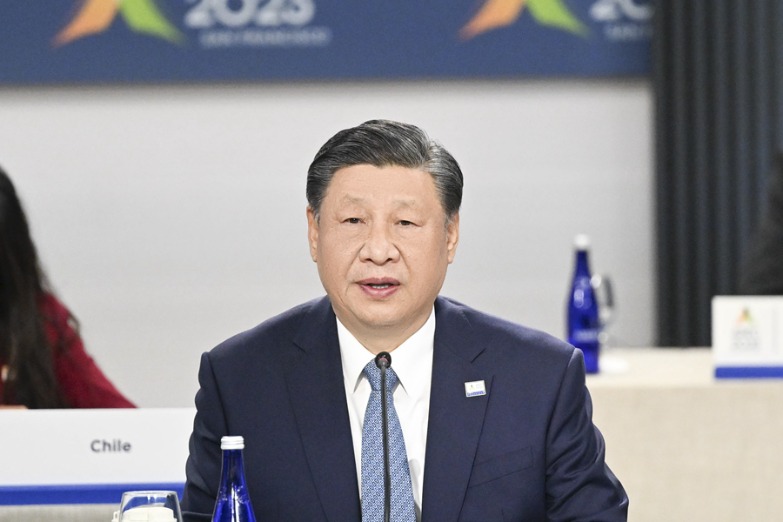
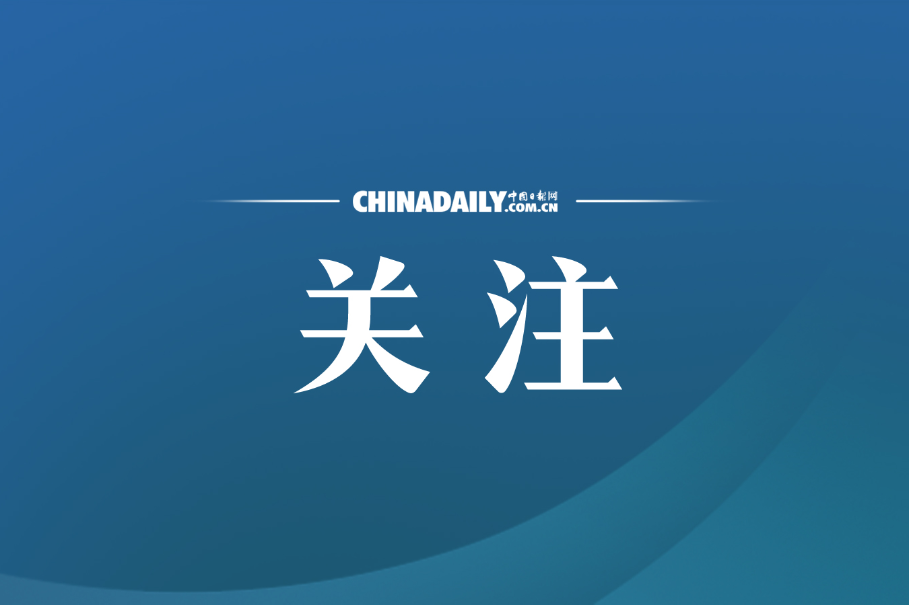
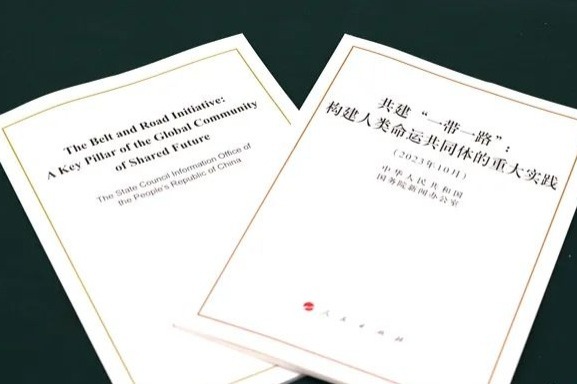
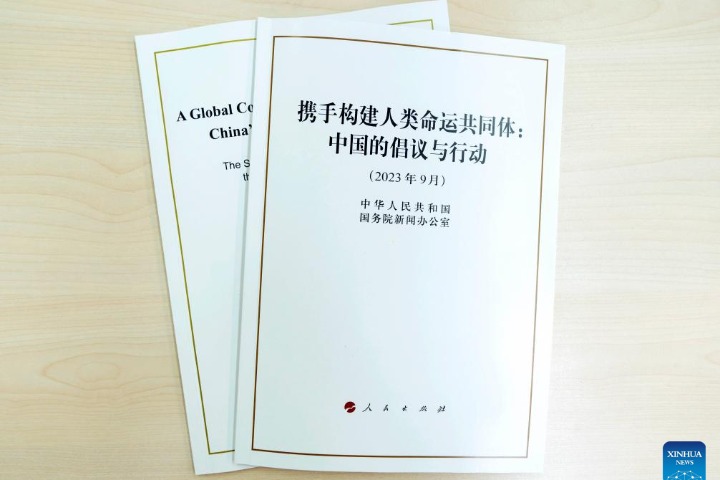
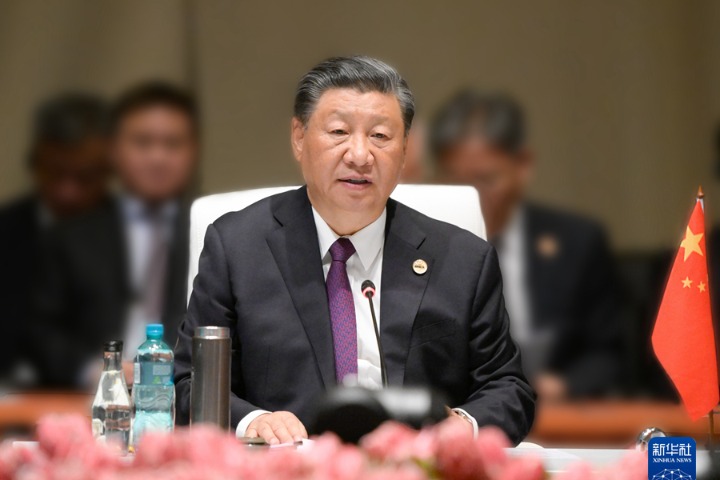



 英语点津微信
英语点津微信 双语小程序
双语小程序